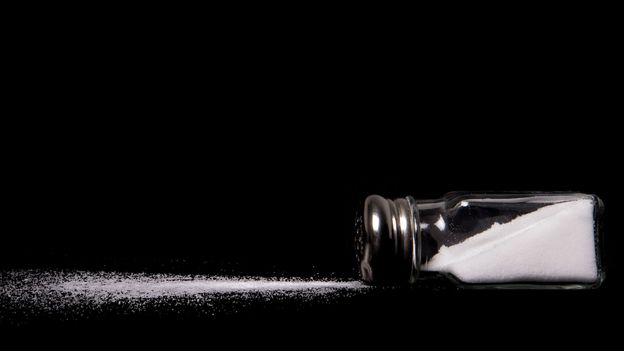By Jessica Brown
30th October 2018
Some scientists are arguing that a low-salt diet is just as dangerous as high salt consumption. What's the reality?
Last year a video of Turkish chef Nusret Gökçe lovingly seasoning a massive steak with a pinch of salt amassed millions of views online and earned him the nickname ‘salt bae’. But it wasn’t just his attention to detail that captured attention.
We’re obsessed with salt – despite warnings we’re consuming too much of it and harming our health in the process. But a counter-argument is gaining ground, casting doubt on decades of research and shedding light on the questions that still remain unanswered about our favourite seasoning.
Sodium, the key element found in salt, is essential for our bodies to maintain its overall fluid balance, transport oxygen and nutrients, and allow our nerves to pulse with electricity. But most populations have historically eaten more salt than advised, and health officials around the world have had their work cut out for them convincing us to cut down.
Guidelines recommend adults have no more than 6g of salt per day. In the UK we consume closer to 8g; in the US, 8.5g.
But only a quarter of our daily intake comes from salt we add into food ourselves – the rest is hidden in the food we buy, including bread, sauces, soups and some cereals.
Adding to the confusion is that on food labels, manufacturers often refer to sodium content rather than salt, which can make us think we’re consuming less salt than we are. Salt is made up of both sodium and chloride ions. In 2.5g of salt, there is about 1g of sodium. “The general public isn’t aware of this, and just think sodium and salt are the same thing. No one tells you this,” says nutritionist May Simpkin.
Research has found that too much salt causes high blood pressure, which can lead to strokes and heart disease, and experts broadly agree that the evidence against salt is compelling. Our bodies retain water when we eat salt, increasing blood pressure until our kidneys flush it out. Too much salt over a long period of time can put strain on our arteries and lead to prolonged high blood pressure, known as hypertension, which causes 62% of all strokes and 49% of coronary heart disease events, according to the World Health Organization.
One meta-analysis of 13 studies published over 35 years found a 17% greater risk of total cardiovascular disease and a 23% greater risk of stroke from consuming an extra 5g of salt per day.











